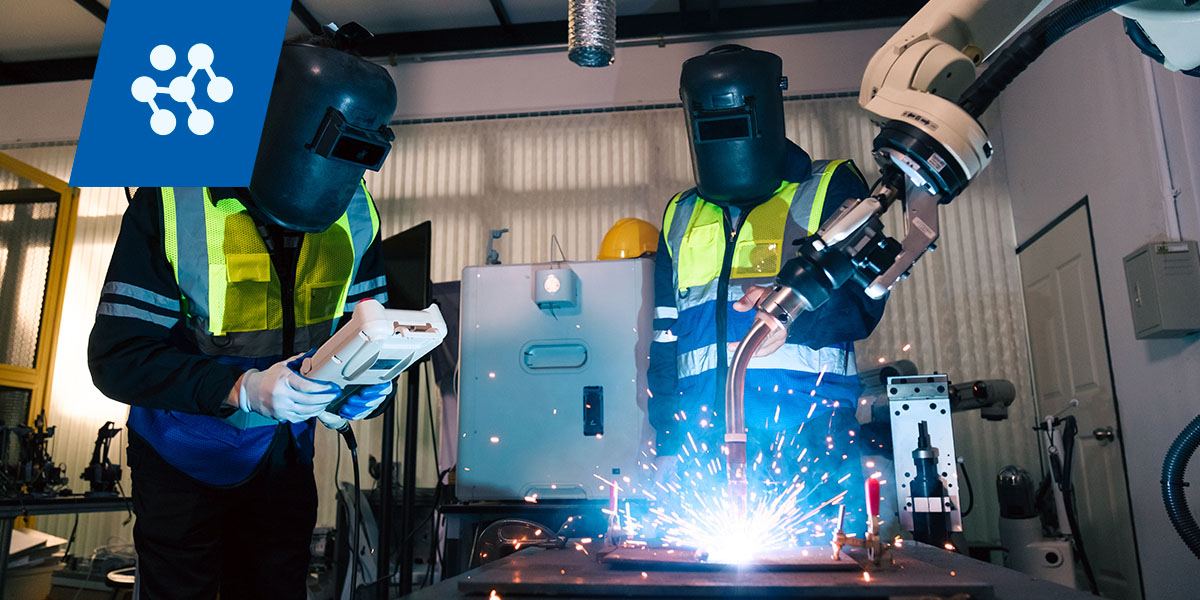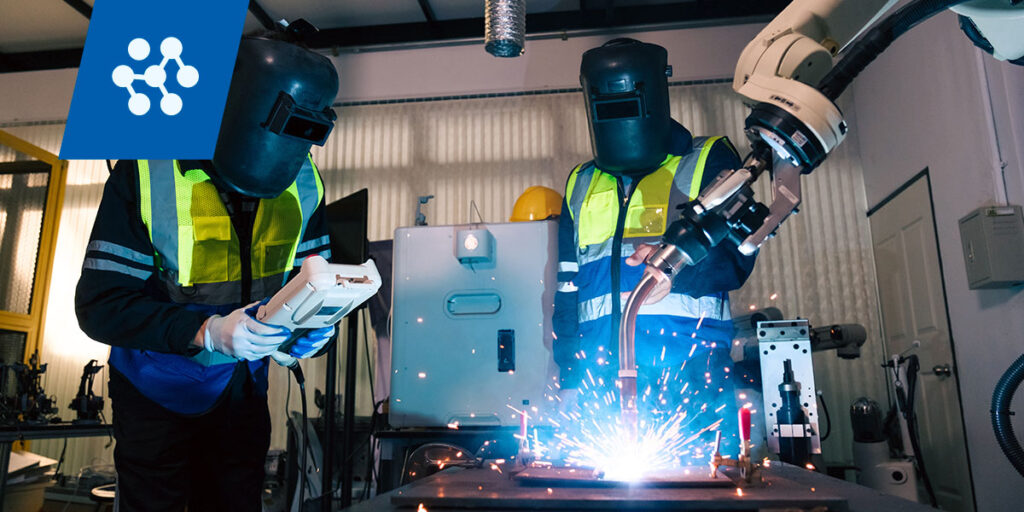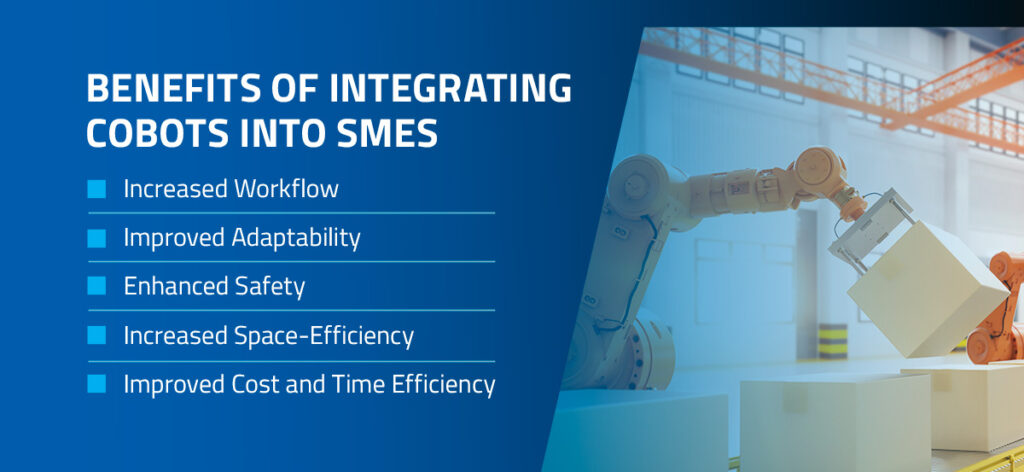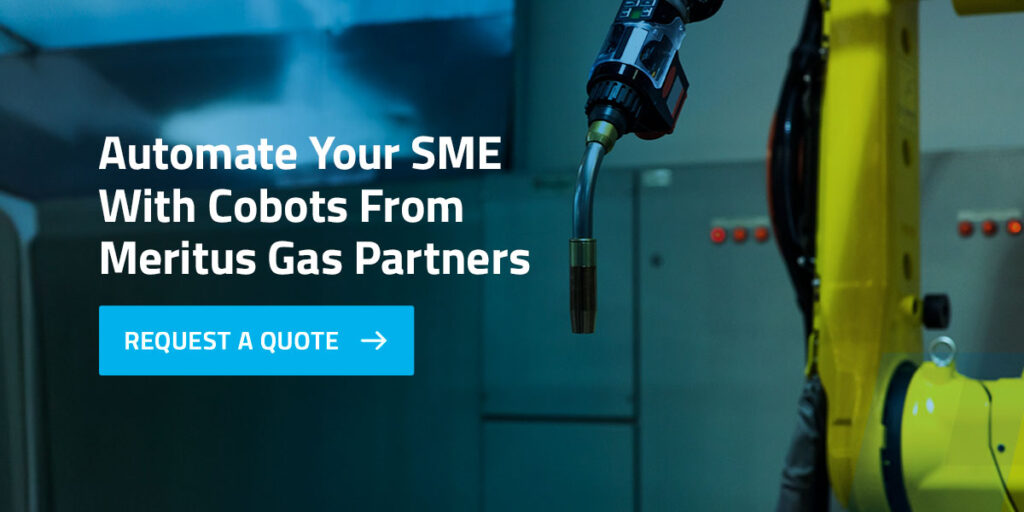

Small and midsize enterprises (SMEs) that want to stay competitive must integrate intelligent technology into their workforce. Cobots are one of the best ways to reap the benefits of artificial intelligence (AI) and technology in a way that helps employees do their jobs better and creates financial success. There are many advantages to integrating cobots into the workplace, and they have the potential to handle tasks in several industries.
A collaborative robot (cobot) is a robot that works alongside humans or other cobots to accomplish certain tasks. Cobots are designed to offer better accessibility and mobility to human workers. They can make certain tasks easier and less stressful for employees. The main purposes of a cobot are to prevent error, increase safety and streamline and simplify procedures.
When many people picture robots in the workplace, they envision conventional industrial robots that involve large and heavy parts and perform tasks away from human workers. While these robots have their place, cobots offer unique benefits.
The International Federation of Robotics estimates that in the next decade, more than 50% of production operators will be working with robots. Here are some of the top ways to use cobots in the manufacturing sector:
Collaborative robots are steadily gaining popularity in industries searching for flexible solutions. Companies that may not have the capital resources or workload to take on large automation systems can benefit greatly from the expertise of cobots. Here are some of the ways SMEs in particular can enjoy the advantages of employing cobots:

Collaborative robots can boost productivity by working with human workers to simplify specific duties. They reduce the number of repetitive, manual tasks that take time away from human workers. For example, a cobot has been shown to reduce a 12-hour sanding job to only 3.5 hours.
A general rule for using cobots to boost productivity is the 80/20 rule, which states that cobots should perform 80% of repetitive tasks in a workspace. This process allows human workers to spend time on more complex tasks with greater focus and energy.
Cobots have a lightweight design, meaning users can quickly maneuver them across different areas of the workspace. Users can assemble and reassemble them with ease. They can also attach to a mobile platform, allowing them to move freely throughout the workspace as needed.
Cobots have an intuitive interface that lets workers quickly switch to new tasks or setups. Thanks to their adaptive programming, these machines are flexible and fully capable of human-robot collaboration and changes in workflow.
Cobots are optimized for safety. Unlike traditional robots, which typically execute their processes without any external awareness, cobots can pay attention to environmental occurrences. Cobots have a range of sensors and use AI to sense nearby humans or potential hazards.
Some models, like MOD-WELD cobots, come with safety accessories like a tabletop magnet screen and pull curtains to keep employees safe during welding procedures. Contact a Meritus Gas team expert to find out more about welding cobots.
Many production spaces feature numerous work zones, so it’s important that any new machinery should fit into tight spaces. Cobots are compact, allowing them to perform significant tasks in very little space. Their smaller size also allows them to easily move to different floor locations, and their smart sensors prevent them from crashing into things while on the mobile platform. The installation process for cobots also doesn’t require much space, as many parts are assembled off-site.
The global cobot market is estimated to reach $9.2 billion by 2028, growing at a compound annual growth rate of 41.5%. One of the biggest contributors to this exponential growth is the high return on investment companies experience from cobots.
Cobots are typically easier to install than other types of traditional robots or machinery, so companies tend to see results quicker than with other options. In some cases, cobots can be programmed to handle exclusive work that would typically require SMEs to hire a specialist. Cobots allow businesses to do more in-house, which reduces external fees and the need for expensive freelance specialists.
Aside from manufacturing, cobots can assist companies in various industries. Some of the most common applications are within the following sectors:
With the lack of talent and unsustainable staff turnover many companies are facing, SMEs can’t afford to hesitate when it comes to implementing operational solutions. Cobots offer a level of automation that is irreplaceable to high-mix, low-volume SMEs.
Businesses face many challenges, including supply-chain challenges, tight profit margins and decreased productivity. Cobots can help with a range of tedious tasks, allowing more room for human creativity and skill and allowing companies to progress with minimal effort.

Cobots can boost productivity and make processes more efficient, all while providing a swift and impressive return on investment. At Meritus Gas Partners, we have suppliers with several cobot solutions suitable for achieving varied tasks.
Our experts have the knowledge to find exactly what your business needs, and we can even help you save money by finding you the right combination of products. If you’re interested in getting started with cobots, don’t hesitate to request a quote from us or find a partner near you to start your journey toward cutting-edge technology and manufacturing solutions.